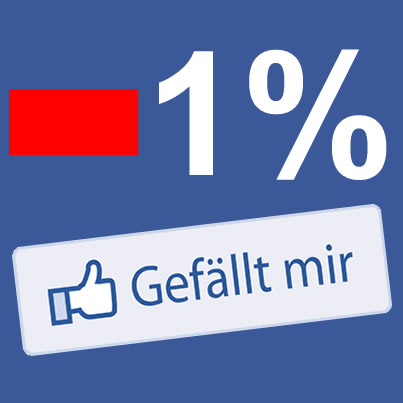Wie Facebook am Freitagabend auf der Facebook Security Seite mitteilte, wurden Verbesserungen am System vorgenommen, welche automatisiert Korrekturen an Likes vornimmt. Die Veränderungen am System sollen Likes erkennen und entfernen, welche durch Malware, gehackte Account, getäuschte Nutzer oder aber auch Kauf von Likes entstanden sind. Gemäss der Mitteilung von Facebook muss davon ausgegangen werden, dass […]

Die Originalmeldung von Facebook Security im Detail:
A Like that doesn’t come from someone truly interested in connecting with a Page benefits no one. Real identity, for both users and brands on Facebook, is important to not only Facebook’s mission of helping the world share, but also the need for people and customers to authentically connect to the Pages they care about. When a Page and fan connect on Facebook, we want to ensure that connection involves a real person interested in hearing from a specific Page and engaging with that brand’s content. As such, we have recently increased our automated efforts to remove Likes on Pages that may have been gained by means that violate our Facebook Terms.
On average, less than 1% of Likes on any given Page will be removed, providing they and their affiliates have been abiding by our terms. These newly improved automated efforts will remove those Likes gained by malware, compromised accounts, deceived users, or purchased bulk Likes. While we have always had dedicated protections against each of these threats on Facebook, these improved systems have been specifically configured to identify and take action against suspicious Likes.
To be clear, we do not and have never permitted the purchase or sale of Facebook Likes as we only want people connecting to the Pages and brands with whom they have chosen to connect. Beyond the need to maintain authentic relationships on Facebook, these third-party vendors often attempt to use malware or other forms of deception to generate fraudulent Likes, which is harmful to all users and the internet as a whole.
These improvements to our site integrity systems benefit both users and brands alike. Users will continue to connect to the Pages and Profiles they authentically want to subscribe to, and Pages will have a more accurate measurement of fan count and demographics. This improvement will allow Pages to produce ever more relevant and interesting content, and brands will see an increase in the true engagement around their content.
To help protect yourself in the future, please be aware of suspicious links and visitwww.facebook.com/hacked if you have any reason to believe that your account may be compromised. We also highly recommend that Page owners vet any business that offers marketing services to build your Facebook presence, to make sure that these companies are using only legitimate practices, which do not violate the Facebook Terms.
Facebook was built on the principle of real identity and we want this same authenticity to extend to Pages. We undoubtedly expect that this will be a positive change for anyone using Facebook, and we look forward to helping even more people share and connect with the friends and brands they care about.
Beachten Sie dazu auch den Blogbeitrag bei viermalvier.at “Facebook löscht gefälschte Likes – muss jedes “Gefällt mir” nun bestätigt werden?”